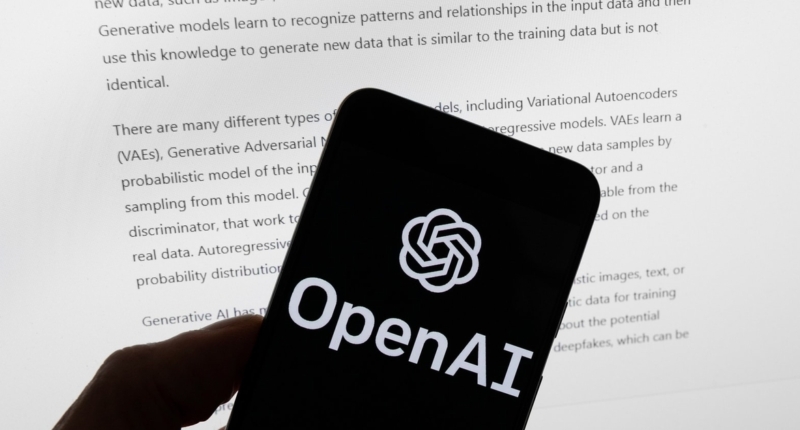Prompt engineering is an emerging field in the AI industry that is mushrooming around the technology behind ChatGPT. Companies are offering up to $335,000 for prompt engineer and librarian jobs. The best-paying roles often go to people who have PhDs in machine learning or ethics, or those who have founded AI companies. Tech companies are adding “AI” to their pitch decks to lure talent who have left or been forced out by job cuts in the crypto world. People who are best suited to prompt engineering are product designers or business analysts comfortable working with AI, and they tend to earn £100,000 to £150,000. Prompt engineering is starting to evolve quite quickly, and the current state of prompt engineering shouldn’t be dwelled on too much.
High-Paying AI Whisperer Jobs in Demand
The AI technology that powers ChatGPT is not only getting noticed but also creating a job market that offers salaries of up to $335,000 per year. Dubbed as “prompt engineers,” these professionals coax AI to produce better results and train people in using these tools.
Over a dozen large language models (LLMs) have been created by companies like Alphabet, OpenAI, and Meta Platforms, and are being used in practical applications like Bing search engine and GitHub software development tool.
As AI technology continues to proliferate, companies are finding the need for someone to ensure rigor in their results. Prompt engineers are becoming increasingly in-demand, with many companies looking for people who can distill the essence or meaning of something into a limited number of words, making them the AI whisperers.
Prompt engineers often come from a background in history, philosophy, or English language, as they need to be adept in wordplay to effectively communicate with the AI systems. Albert Phelps, a prompt engineer at Mudano, part of Accenture, in Leytonstone, England, says that they spend most of their day writing messages or prompts for tools like ChatGPT, which can be saved as presets within OpenAI’s playground for clients and others to use later.
Phelps, who studied history at the University of Warwick, was inspired to research AI after attending a talk from the Alan Turing Institute, leading to his role at Accenture. A typical day in the life of a prompt engineer involves writing five different prompts and around 50 interactions with ChatGPT.
Interestingly, a computer engineering degree is not always a requirement for these high-paying jobs, making it an accessible career path for those with diverse backgrounds.
The Emergence of Prompt Engineering: A High-Paying Job Market in the AI Industry
Prompt engineering is an emerging field in the AI industry that is mushrooming around the technology behind ChatGPT. Prompt engineers coax the AI to produce better results and train people in harnessing the tools. This field emerged in 2017 when AI researchers created pre-trained LLMs that could be adapted to a wide range of tasks with the addition of human text input. Since then, LLMs like ChatGPT have attracted millions of users who tweak their prompts, thus engaging in prompt engineering.
Companies like Anthropic, Google-backed start-up, are advertising salaries up to $335,000 for a “Prompt Engineer and Librarian” in San Francisco. Boston Children’s Hospital and London law firm Mishcon de Reya have also advertised for prompt engineer jobs. Automated document reviewer Klarity in California is offering as much as $230,000 for a machine learning engineer who can prompt and understand how to produce the best output from AI tools.
It’s now even possible to buy and sell text prompts via the PromptBase marketplace, which also helps people hire prompt engineers to create individual prompts for a fee.
The best-paying roles often go to people who have PhDs in machine learning or ethics, or those who have founded AI companies. Recruiters and others say these are among the critical skills needed to be successful.
Outside of the tech world, companies in the financial, legal, and insurance industries are experimenting with AI tools, which is driving demand. Mishcon de Reya recently advertised for a GPT Legal Prompt Engineer to help the firm understand how large language models could be applied to legal problems.
The role is becoming mainstream among bigger companies thanks to the excitement around the launch of OpenAI’s ChatGPT-4, Google Bard, and Microsoft’s Bing AI chatbot. Google, TikTok, and Netflix have been driving salaries higher.
Mark Standen, who runs the staffing business for artificial intelligence, machine learning, and automation at Hays in the UK and Ireland, says, “It’s probably the fastest-moving IT market I’ve worked in for 25 years. Salaries start at £40,000, but we’ve got candidates on our database looking for £200,000 to £300,000 a year. Expert prompt engineers can name their price.”
Nick West, a partner and chief strategy officer at Mishcon de Reya, cautions that paralegals looking for a step up in income might be disappointed. “We don’t need a £300,000 expert, that’s ludicrous money,” says West.
However, with the increasing demand for AI tools in various industries, prompt engineering is a promising career path for those with diverse backgrounds. The high salaries being offered in this field make it a lucrative opportunity for individuals looking for a well-paying job without necessarily having a computer engineering degree.
Prompt Engineering Jobs in AI Industry Drawing Comparisons to Crypto
Prompt engineering jobs in the AI industry are growing at a warp-speed rate and drawing comparisons to the jobs boom in blockchain, Non-Fungible Tokens, and crypto in 2021. Many tech companies are adding “AI” to their pitch decks to lure talent who have left or been forced out by job cuts in the crypto world. However, the jobs market may even be getting ahead of the technology, and it may be a sign of froth. People who are best suited to prompt engineering are product designers or business analysts comfortable working with AI, and they tend to earn £100,000 to £150,000. However, the prompt engineering industry is evolving quite quickly, and people interested in these jobs should move fast. Adrian Weller, a director of research in machine learning at the University of Cambridge, says that prompt engineering is starting to evolve quite quickly, and the current state of prompt engineering shouldn’t be dwelled on too much.
Don’t miss interesting posts on Famousbio










